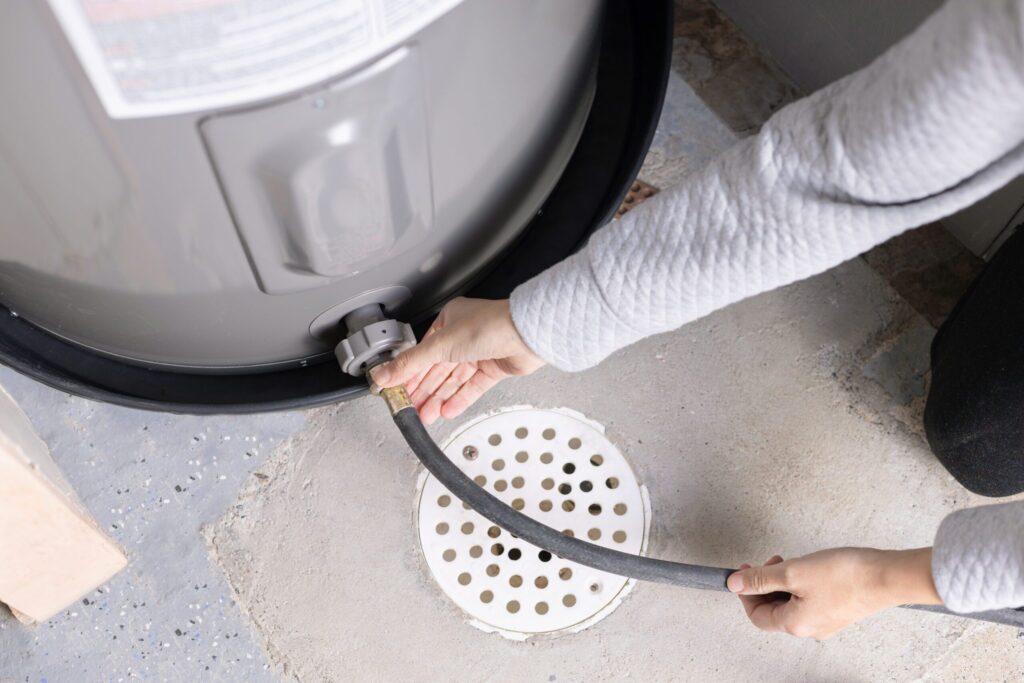When it comes to choosing the right water heater for your home, there are several options available. One of the most popular choices is gas water heaters. Known for their efficiency and reliability, gas water heaters offer clear advantages—but they also come with a few drawbacks. Understanding the pros and cons will help you decide whether this system is right for your household.
How Gas Water Heaters Work
Gas water heaters use natural gas or propane as their fuel source. Inside the tank, a burner at the bottom heats the water, which then rises and is stored until it’s ready for use. Venting systems carry exhaust gases safely out of the home. These heaters are available in both traditional tank-style and newer tankless designs, giving homeowners flexibility based on their needs.
The Benefits of Gas Water Heaters
Faster Heating Performance
One of the biggest advantages of gas water heaters is speed. They heat water much faster than electric models, meaning less waiting time for hot showers or dishwashing.
Lower Operating Costs
In most areas, natural gas is less expensive than electricity. According to the U.S. Department of Energy, gas water heaters typically cost less to operate than electric models, making them more affordable to operate over the long run, especially for families with high hot water usage.
Reliable Hot Water Supply
Because they heat water quickly and recover faster, gas water heaters are ideal for households that need steady access to hot water. Large families often benefit most from this type of system.
Works During Power Outages
Unlike electric models, many gas water heaters can continue to function during a power outage. As long as there’s a steady supply of gas, you’ll still have hot water when you need it most.
The Drawbacks of Gas Water Heaters
Higher Upfront Cost
Gas water heaters typically cost more to purchase and install compared to electric models. Professional installation is essential due to gas line and venting requirements.
Maintenance Needs
Because they burn fuel, gas water heaters require more frequent inspections and maintenance. Regular HVAC or plumbing professionals should check the burner, venting, and gas connections for safety.
Ventilation Requirements
Proper venting is crucial for safety, which can limit installation options. The Environmental Protection Agency (EPA) emphasizes the importance of proper ventilation for gas appliances to maintain safe indoor air quality. If your home isn’t already equipped with gas lines or vents, installation may be more complicated and expensive.
Environmental Impact
While gas water heaters are efficient, they do produce carbon emissions. Homeowners looking to minimize their environmental footprint may prefer electric or hybrid alternatives.
Gas Water Heaters vs. Electric Water Heaters
When comparing gas water heaters to electric models, the decision often comes down to your priorities. If you want quick recovery times, lower energy bills, and reliable performance during outages, gas water heaters may be the right choice. However, if you prefer lower upfront costs and simpler installation, electric models may make more sense.
Is a Gas Water Heater Right for You?
To decide whether gas water heaters are a good fit, consider factors like:
- Your household’s daily hot water needs
- Availability and cost of natural gas in your area
- Space for proper venting
- Your budget for installation and ongoing maintenance
A professional plumber can assess your home and recommend the best option based on efficiency, safety, and long-term costs. According to ENERGY STAR, proper sizing and professional installation are key factors in maximizing water heater efficiency and performance.
Final Thoughts
Gas water heaters offer clear benefits, including lower energy costs, faster heating, and dependable performance. However, they also come with higher upfront costs, maintenance needs, and environmental considerations. By weighing the pros and cons carefully, you’ll be able to choose the right system to keep your home comfortable and your water reliably hot.
Ready to Explore Your Water Heating Options?
If you’re located in the Asheville, Hendersonville, or Mills River, NC areas, contact All About Plumbing & Septic today for expert advice on choosing the right water heater for your home. Our experienced technicians can help you evaluate your options and ensure proper installation.
Whether you need plumbing services or water heater installation and maintenance, we’re here to provide reliable solutions for your home comfort needs.
Contact us today to schedule your consultation and find the perfect water heating solution for your home.


Schedule a Service or Request a FREE Estimate Now: